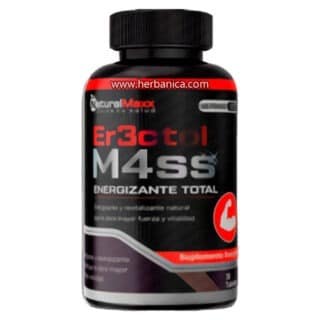Category
- Slimming
- Capsules
- Diabetes and Cholesterol
- Natural Extracts
- Filtering
- Gynecology
- Multivitaminicos
- Healthy Packs
- Female Sexual Potency
- Male Sexual Potency
- Restorative Regenerators
- Digestive system
- Sistema Hepatico
- Immune system
- Nervous system
- Bone and Skin System
- Respiratory system
- Urinary system
- Supplements
Sales
-
Er3ctol M4ss Total Energizer
S/79.99S/59.99 -
HGH Releasing Support 90 cápsulas Xtralife
S/150.99S/147.99 -
Achiocat Capsules
S/42.99S/36.99 -
ProColágen Plus 600 gr Labsabell
S/149.99S/114.99 -
Grouper Male 550ml Fitoq
S/79.99S/59.99 -
Glucosamine y Chondroitin
S/150.00S/99.99

11 Amazing Cardamom Benefits You May Not Know About
Learn about the 11 amazing health benefits of cardamom that include gastrointestinal protection, cholesterol control, cancer control, relief from cardiovascular problems, and improvement of blood circulation in the body. It is useful in curing dental diseases and urinary tract infections such as cystitis, nephritis, and gonorrhea. Cardamom possesses aphrodisiac properties and is also used as a cure for impotence, erectile dysfunction, and premature ejaculation.
What is Cardamom?
Cardamom is a spice that originated in India, Nepal, and Bhutan. Today, it is available in most tropical places in Asia, including India, China, Bhutan, Vietnam, Malaysia, Korea, and Japan. It is considered as the Queen of Spices and is one of the most expensive spices, ranking third, first and second being saffron and vanilla, respectively.
Cardamom cultivation is believed to have begun in the humid, tropical climate of India. In botanical terms, it belongs to the Zingiberaceae family and its scientific name is Elettaria cardamomum. There are two main types or subspecies of cardamom. Its scientific names are Elettaria, which is called green or true cardamom, and Amomum, which means black, white, or red cardamom.
The Spice Council of India recognizes three varieties of cardamom, which include the Malabar, Mysore, and Vazhukka varieties. There is another variety, called Njallani, which has become very popular along with the three normal varieties. This variety was developed by a small farmer named Sebastian Joseph from the Idukki district of Kerala.
It is in the form of a small pod with black seeds inside. Both the seeds and the pod give a pleasant aroma and flavor. Therefore, they are used as flavoring agents in Indian cuisine. Its use is not limited to hot and spicy dishes; the seeds are also added to desserts and beverages to complement the sweet taste. Cardamom tea is a very famous drink, along with ginger tea, in India.
In India, cardamom was traditionally considered an herb and was one of the ingredients in Ayurveda (the ancient Indian science of medicine and lifestyle) and traditional Chinese medicine. It was believed to be a remedy for tooth and gum infections, throat problems, congestion of the lungs, pulmonary tuberculosis, swollen eyelids, gastrointestinal disorders, kidney disintegration, and gallbladder stones, and was also used as an antidote against poisons and poisons.
Cardamom Nutritional Facts.
According to the US Department of Agriculture and the National Nutrient Database for Standard Reference, cardamom (100 g) contains energy (300 kcal), carbohydrates (68 g), protein (11 g), dietary fiber ( 28 g) and no cholesterol (0 mg).
Cardamom is rich in various vitamins and micronutrients as well. These include niacin, pyridoxine, riboflavin, thiamin, vitamin A, vitamin C, sodium, potassium, calcium, copper, iron, manganese, magnesium, phosphorus, and zinc.
Cardamom Health Benefits.
Cardamom is an ideal spice with many health benefits. The most popular health benefits are listed below.
Prevents colorectal cancer.
Cancer, particularly colorectal cancer, is one of the leading causes of death worldwide. The rising cost of conventional cancer therapy and subsequent side effects have encouraged researchers to look for alternatives that are sustainable. Studies by Sengupta et al. at the Chittaranjan National Cancer Institute in Kolkata have shown that dietary cardamom had a positive result in counteracting colorectal cancer by 48%.
Good for cardiovascular health.
Research studies conducted at the Department of Pharmacology and Pharmacy, King Saud University School of Pharmacy, Saudi Arabia, showed that administration of cardamom for cardiovascular conditions results in a lower heart rate or controlled rhythm, and the control of hypertension. The micronutrients found in it can counteract the surge of lipids in the body. In experiments carried out at the Division of Pharmacology and Toxicology at Hindustan Antibiotics Limited in Pune, India, by Dhuley, hepatic and cardiac antioxidant enzymes from cardamom were administered to mice, which were fed a high-fat diet. Antioxidant enzymes influenced cholesterol levels and helped control them significantly.
antidepressant
Cardamom is also believed to possess antidepressant properties. Its essential oil is one of the main oils used in aromatherapy. It can be used not only for depression but also as a cure for various other illnesses ranging from stomach disorders to lung diseases.
Prevents gastrointestinal diseases.
Cardamom has traditionally been used in Ayurveda, Chinese medicine, and the Unani system as a remedy for gastrointestinal disorders. Cardamom methanolic extract is the component that helps control gastrointestinal disorders such as heartburn, flatulence and stomach cramps. A study by Jamal et al. at the Department of Chemistry, Jamia Hamdard, in New Delhi, India, concluded that volatile oils extracted from cardamom have shown positive effects on gastrointestinal disorders.
antimicrobial properties.
For many millennia, cardamom was thought to possess infection-fighting properties. To modern science, it means that cardamom contains antimicrobial properties. This theory was tested at Van Yüzüncü Yil University by Ağ Aoğlu et al. Experiments were carried out on its volatile extracts. Cardamom oils were found to be able to inhibit the growth and spread of some of the very dangerous microbes that regularly cause food poisoning.
Antispasmodic and anti-inflammatory properties.
According to Ayurveda, cardamom is good for muscle and joint pain. Muscle spasms are often reported by older people. A sudden contraction of the muscles causes these spasms. When muscles contract, they can cause a sudden onset of pain. The researchers Al-Zuhair et al. Animal-based research was conducted at King Saud University in Saudi Arabia and it was concluded that cardamom can be used as a control measure for muscle spasms. Recent experimental evidence suggests that cardamom possesses anti-inflammatory and anticancer properties.
dental diseases
Cardamom has been used in Ayurveda as well as traditional Chinese medicine to treat dental problems for many centuries. After the invention of antibiotics, these antibiotics were found to produce mixed results as well as side effects. Some side effects include inhibition of friendly probiotic bacteria that thrive in the intestines. However, the use of spices, on the other hand, is ideal because they inhibit only infectious microbes, not probiotic bacteria. A study conducted by Isao Kubo, Masaki Himejima, and Hisae Muroi at the Division of Entomology and Parasitology at the University of California has verified the presence of antimicrobial properties in cardamom.
anti-asthmatic property.
Cardamom can also be used as a remedy for asthma and other respiratory problems. A study has shown that crude cardamom extracts were effective enough to open constricted tracheas in laboratory animals. They were also effective in causing relaxation to the tracheal tissues. This preliminary study has been positive and warrants further investigation.
Although research is still being conducted to determine the exact chemical pathway for this health benefit, it appears that sarsaparilla may suppress appetite. This means that for those trying to lose weight, adding this supplement can curb your cravings and prevent you from cheating on your diet.
Metabolic processes in our body release toxins and free radicals that must be scavenged and flushed out to stay healthy. Otherwise, these accumulated toxins can cause various diseases, including cancer and premature aging. Cardamom is known to act as a detoxifying agent. The essential oils and biochemicals present in cardamom provide detoxifying effects. A study by Das et al. showed that cardamom was effective against cancer cells.
Improves blood circulation.
In traditional therapies such as aromatherapy, cardamom has been used to cure the symptoms of asthma and bronchitis by improving blood circulation to the lungs. The essential oil extracted from cardamom has been tested on groups of people with stress and cardamom has been found to be effective in promoting blood circulation in the body. The research was carried out at Nitte University in Mangalore, India.
Treats nausea, sore throat, and vomiting.
Traditionally, cardamom has been used as a remedy for nausea. Cardamom is an effective tonic and stimulant and is good for calming feelings of nausea and vomiting. For sore throat, cardamom acts as a good remedy. Cardamom and cinnamon can be boiled in water and used as a gargle every morning to control a sore throat.
Other Uses And Benefits.
Aphrodisiac properties.
As cardamom imparts a sweet flavor, it was traditionally believed to possess aphrodisiac properties. Not only is cardamom considered an aphrodisiac, but it is also believed to hold the cure for impotence and premature ejaculation.
YOU CAN ALSO SEE: YOU CAN VIEW MORE INFORMATION HERE:
Treating Urinary Disorders.
In AyurvedaCardamom has been used as a remedy for urinary tract diseases and infections such as cystitis, nephritis, and gonorrhea.
Hiccup.
Hiccups can be very annoying, especially for children. There are several remedies prescribed in folk medicine and one of the most popular among them is to surprise a person who has hiccups. This may or may not work most of the time. However, cardamom is another very effective remedy. Take some cardamom pods and boil them in water. By drinking this water, one can get rid of hiccups.
Air freshener.
Cardamom pods and seeds can be chewed as an air freshener. The flavors and aroma found in cardamom are due to the presence of essential oils. It's no wonder that cardamom essential oil is being used as a popular ingredient in chewing gum!
Written by admin
HERBANICA.COM offers you natural products of excellent quality; If you have any questions, suggestions or questions to ask us about the products, the website, the purchase methods, etc .; You can contact us by filling out the contact form.
Best Deals
Join without risk
Refund in 24 hours maximum.
100% sure
Safe shopping.
24x7 support
Online 24 hours.
Best Deals
Buy now.
Shipments
To the whole country.
What's new?



TOP products
-
Jenjibre X100 And Capsulas Naturalmaxx S/33.99
-
Hyr Herbal Maxx X100 and Capsulas Naturalmaxx S/33.99
-
Huanarpo Male X100 And Naturalmaxx Capsules S/33.99
-
Hercampure Maxx X100 and Capsulas Naturalmaxx S/33.99
-
Hepton Herbal X100 And Capsulas Naturalmaxx S/33.99
-
Graviola X100 And Capsulas Naturalmaxx S/29.99
-
Glucozhamine X100 and Capsulas Naturalmaxx S/38.99
-
Ginseng X100 And Capsulas Naturalmaxx S/38.99
















